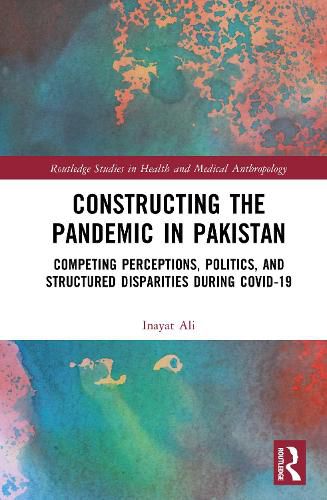Readings Newsletter
Become a Readings Member to make your shopping experience even easier.
Sign in or sign up for free!
You’re not far away from qualifying for FREE standard shipping within Australia
You’ve qualified for FREE standard shipping within Australia
The cart is loading…






With a focus on the way the COVID-19 pandemic unfolded in Pakistan, this book casts a critical light on the unique experiences and responses of individuals, community and government. It critically examines how these diverse actors made sense of and navigated the outbreak of disease. The author reveals differing perspectives and multiple narratives that emerged at various levels. The chapters situate the spread of rumors, conspiracy theories, and new social rituals within micro- and/or macro-contexts, and describe the interplay between the virus and various institutionalized forms of inequities and structural vulnerabilities. Touching on socio-cultural, economic and (geo-)political contexts that make Pakistan a unique case study, the book relates to the past, describes and analyzes the Covidian present, and offers futuristic implications. It enlists distinct imaginaries based on current understandings of an extraordinary challenge that holds significant importance for our human future. Constructing the Pandemic in Pakistan will interest scholars of anthropology, sociology, and the Global South as well as those working in the domains of global and public health.
$9.00 standard shipping within Australia
FREE standard shipping within Australia for orders over $100.00
Express & International shipping calculated at checkout
With a focus on the way the COVID-19 pandemic unfolded in Pakistan, this book casts a critical light on the unique experiences and responses of individuals, community and government. It critically examines how these diverse actors made sense of and navigated the outbreak of disease. The author reveals differing perspectives and multiple narratives that emerged at various levels. The chapters situate the spread of rumors, conspiracy theories, and new social rituals within micro- and/or macro-contexts, and describe the interplay between the virus and various institutionalized forms of inequities and structural vulnerabilities. Touching on socio-cultural, economic and (geo-)political contexts that make Pakistan a unique case study, the book relates to the past, describes and analyzes the Covidian present, and offers futuristic implications. It enlists distinct imaginaries based on current understandings of an extraordinary challenge that holds significant importance for our human future. Constructing the Pandemic in Pakistan will interest scholars of anthropology, sociology, and the Global South as well as those working in the domains of global and public health.